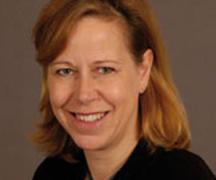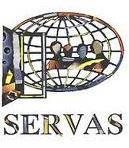Leslie Steed died recently at the age of 101. Born and raised in Stafford in a Quaker family, he was encouraged by his father to look for a job with a pension – so he started to work with the Corporation of Stafford Gas Works. But as the war broke, his early career was interrupted.
 Under the terms of the National Service (Armed Forces) Act of 1939 conscientious objectors had to face a tribunal to claim exemption from fighting. When Leslie’s turn came, the judge told him and two colleagues that they would be exempt from military service as long as they joined the Friends Ambulance Unit (FAU) which allowed them to serve close to the front line without engaging in fighting, but sharing the dangers.
Under the terms of the National Service (Armed Forces) Act of 1939 conscientious objectors had to face a tribunal to claim exemption from fighting. When Leslie’s turn came, the judge told him and two colleagues that they would be exempt from military service as long as they joined the Friends Ambulance Unit (FAU) which allowed them to serve close to the front line without engaging in fighting, but sharing the dangers.
Leslie joined the FAU in 1939 at the age of 20. Visiting his cousin, an FAU member in Birmingham, he realised that what they were doing was “really up [his] street.” He said ”We called ourselves the chocolate soldiers of Paul Cadbury.”
After working in a hospital in London, he worked with the Eighth Army in North Africa as an ambulance driver and mechanic and then the Allied Troops in a blood-transfusion unit in Italy, returning to work in the gas industry after the war.
After retirement he served on the Oak Tree House management board and after some years he and his wife became residents. He took on several tasks, the most time-consuming one being locking various external doors and closing windows in the two-storey building every night.
It is good to hear that he was with his daughter and son-in-law in Newcastle under Lyme during his last days, having moved to stay with them a few days before the Covid lockdown.
After the funeral in Newcastle, a memorial service was held on the 29th May in the sitting room at Oak Tree House, with restricted attendance as Bournville Meeting House had been closed due to the virus. Claire Bowman adds that when meetings resume a memorial service will be held, accommodating all the people who would wish to attend.
A life well-lived. We salute him.
.


 A hundred years after the British Government legalised the right of conscientious objection to military service – the first country in the world to do so – a Bill to extend this right into the tax system is being introduced to Parliament by Ruth Cadbury MP, a descendent of WW1 conscientious objectors affected by the 1916 clause.
A hundred years after the British Government legalised the right of conscientious objection to military service – the first country in the world to do so – a Bill to extend this right into the tax system is being introduced to Parliament by Ruth Cadbury MP, a descendent of WW1 conscientious objectors affected by the 1916 clause.


